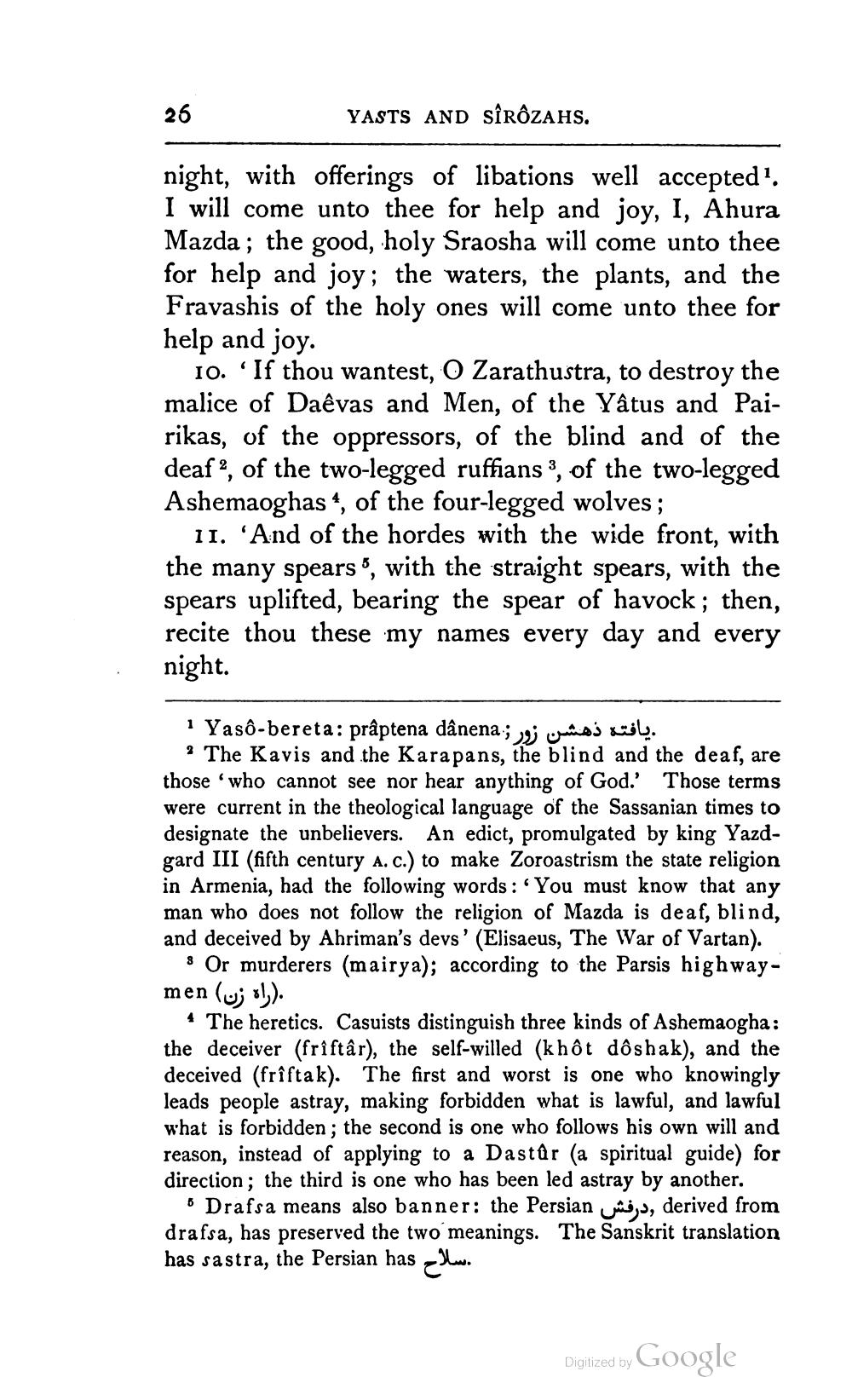________________
36
YASTS AND SîRÔZAHS.
night, with offerings of libations well accepted'. I will come unto thee for help and joy, I, Ahura Mazda; the good, holy Sraosha will come unto thee for help and joy; the waters, the plants, and the Fravashis of the holy ones will come unto thee for help and joy.
10. 'If thou wantest, O Zarathustra, to destroy the malice of Daêvas and Men, of the Yâtus and Pairikas, of the oppressors, of the blind and of the deaf?, of the two-legged ruffians 3, of the two-legged Ashemaoghas“, of the four-legged wolves;
11. 'And of the hordes with the wide front, with the many spears", with the straight spears, with the spears uplifted, bearing the spear of havock; then, recite thou these my names every day and every night.
1 Yasô-bereta: prâptena dânena; , wiss .
* The Kavis and the Karapans, the blind and the deaf, are those who cannot see nor hear anything of God.' Those terms were current in the theological language of the Sassanian times to designate the unbelievers. An edict, promulgated by king Yazdgard III (fifth century A. c.) to make Zoroastrism the state religion in Armenia, had the following words : 'You must know that any man who does not follow the religion of Mazda is deaf, blind, and deceived by Ahriman's devs' (Elisaeus, The War of Vartan).
8 Or murderers (mairya); according to the Parsis highwaymen (w; oly).
4 The heretics. Casuists distinguish three kinds of Ashemaogha: the deceiver (frîftâr), the self-willed (khôt dôshak), and the deceived (frîftak). The first and worst is one who knowingly leads people astray, making forbidden what is lawful, and lawful what is forbidden; the second is one who follows his own will and reason, instead of applying to a Dastûr (a spiritual guide) for direction; the third is one who has been led astray by another.
o Drafsa means also banner: the Persian hiss, derived from drafsa, has preserved the two meanings. The Sanskrit translation has sastra, the Persian has w.
Digitized by Google




